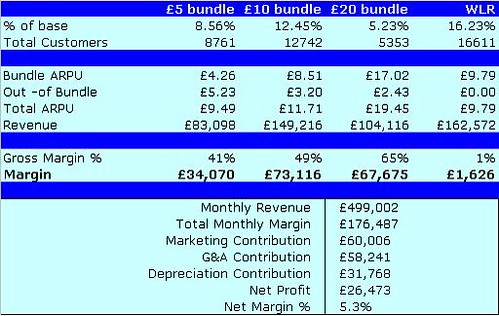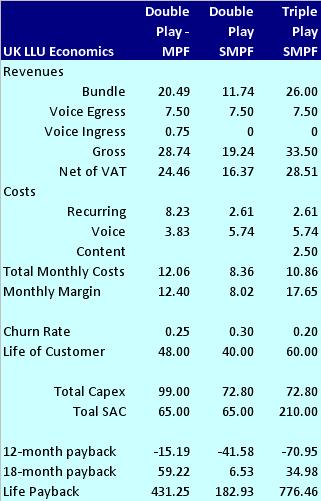O2: The Tide is Turning
When there is a general economic slowdown or sharp competition, staff tends to withdraw into their shells, become more risk averse and paranoid about their jobs. Staff knows especially the front line and accounting teams, when a company is struggling in the marketplace and a destructive circle of underperformance tends to set in.
The result of this circle of underperformance usually ends in cost cutting, redundancies, further paranoia and loss of momentum.
O2 Germany seems to be in this category now announcing 15% redundancies of staff. And this is despite being the stellar performer in the O2 group since O2 was created and very few back in the day thought o2 Germany had the steam to make it on its own. Admittedly Germany is currently a tough market and O2 are sub-scale, but all the problems could be solved by taking out kpn’s e-plus – something that is currently even beyond the wallet of o2’s parent company, Telefonica. Tellingly the redundancy announcement was preceded by a change of the senior executive from old school O2 to new school Telefonica appointees.
The crucial market for O2 is the UK and I personally think that there are embryonic signs that the tide is also turning in the UK. O2 technological innovation over the last few years, apart from a few non-deployed highly publicized controlled experiments with Manx Telecom, appear to have been extremely limited and more importantly part of a high level strategy of minimizing capex. O2 has invested all its money in a slick brand appealing to the addicted to texting youth.
Unfortunately for O2 the market in 2007 is moving away from them:
- H3G is cornering the market for geek friendliness and although showing limited signs of future profits are at least less cash consuming than in the previous incarnations;
- T-Mobile is actually currently the mass market punters friends – they dream up appealing market changing deals like Flext and Web ‘n’ Walk, but unfortunately for T-Mobile UK the head office back in Bonn never seem to provide the investment to keep a constant message (and more importantly commissions) across any channel for any length of time and therefore only the minority attentive observers can jump aboard the T-Mobile train; and
- Voda is back in an aggressive manner and they are fighting on two new fronts in the consumer market. The Vodafone Family on-net pre, postpaid mix package shifts the paying field for price plans - if we are all honest the Voda brand appeals to the older and bill paying members of the family who actually make mobile decisions for a big percentage of the population. Next on the Voda target is the mobile internet niche, which despite a completely incomprehensible marketing campaign appears to be playing exactly into the Voda strengths of “imagined” technical strength; and
- Orange is still comatose and inward looking but the life support machine is showing signs of activity. Any effort from planet Orange is an improvement from their current state.
Crucially, I think that the recent decision by O2 to dump imode in the uk is the start of a cash conservative phase. It is not important on the pluses or minuses of the imode technology but more that o2 have started to fail, again, in the UK market. The last time O2 failed was when they were called Cellnet and part of an UK incumbent called BT. Now they are part of a Spanish incumbent, bureaucracy will seem the same as with BT and blood is bound to flow. It was also noticeable from a Telefonica statement that o2 would be a lot less aggressive in the uk market in the second half.
Obviously a potential ace up the sleeve for O2 UK from recent press murmurs is that O2 have won the iPhone contract in the UK. Personally, I see this as more of a sign of weakness for O2 than strength. However, I appreciate that the jury is still out and that I am part of the awkward squad who dare to question the iPhone economics for the MNO.
Rather than the announcement of a iPhone contract, investors should be looking for a changing of the guard at O2 and then adding 6-12 months while they get their feet under the table and plans potentially turn into reality before O2 will be King of the EuroOperator growth league again.








